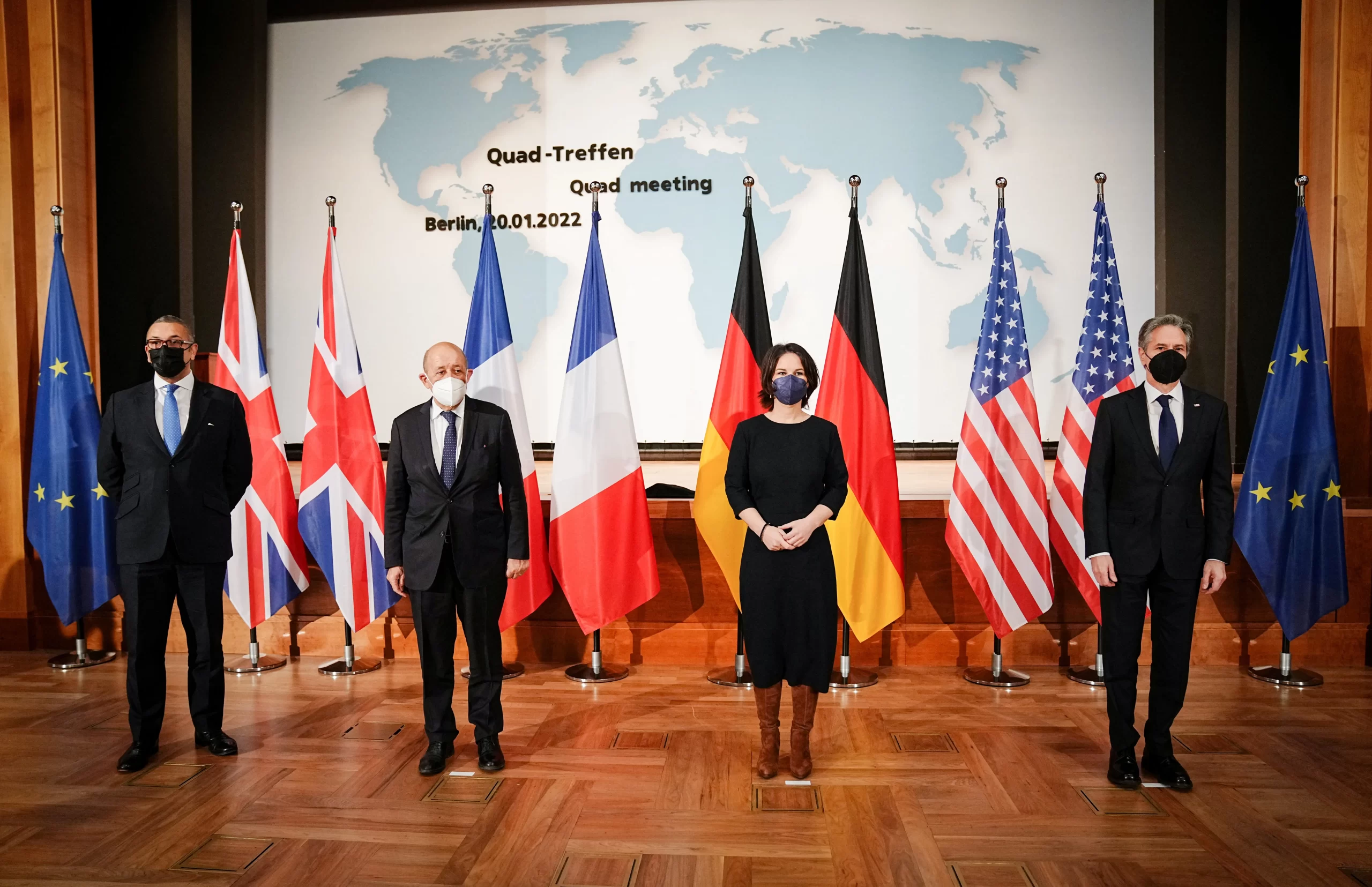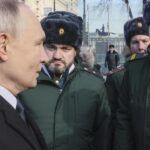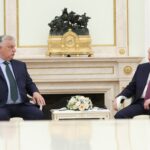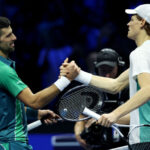U.S.-European tensions and the future of Ukraine dominated the discussions at this year’s Munich Security Conference (MSC). An equally important aspect of Europe’s security equation, however, was the alignment of its adversaries: Russia, China, Iran and North Korea. On Feb. 15, director of Harvard University’s Belfer Center for Science and International Affairs Meghan O’Sullivan convened an MSC panel to discuss “Adversarial Alignment” and its future ramifications for European and global security, delivering the opening remarks. O’Sullivan was joined in conversation by Ian Bremmer, president of the Eurasia Group and Belfer senior fellow; Fiona Hill, former Senior Director for European and Russian Affairs on the National Security Council and member of Harvard University’s Board of Overseers; Dmytro Kuleba, former Ukrainian foreign minister and Belfer senior fellow; and David Sanger, White House and National Security Correspondent for The New York Times and former Belfer senior fellow. The speakers concurred that the West’s adversaries were not monolithic: while China seeks to preserve global stability and multilateral institutions to displace the U.S. on the world stage, Russia, Iran and North Korea aim to destroy the status quo. In his drive to dismantle the U.S.’s international commitments, Kuleba and Bremmer concluded, U.S. President Donald Trump is giving Chinese President Xi Jinping exactly what he wants.
The speakers agreed that adversarial alignment between Russia, China, Iran and North Korea is based much more on quid pro quos related to the war in Ukraine than deep ideological convergence. Hill argued that Russia did not embark upon its invasion with intentions of forging closer relationships with China, Iran or North Korea. “A quid pro quo is emerging,” she said, as Russia needs resources to fuel its war effort: namely, North Korean Soviet-era arms and ammunition, Iranian drones and Chinese chips, energy markets, and capital reserves. Before the war, Russia opposed expanding North Korea’s and Iran’s nuclear programs. It now supports the expansion of these programs due to assistance it received from those countries during the conflict. According to Hill, “all the dynamics have changed.”
Hill and Kuleba are concerned that the Global South has internalized the “wildly popular” view that Ukraine is an American proxy war. Kuleba recalled conversations from his time in the Ukrainian Foreign Ministry with Chinese counterparts, who expressed the opinion that “China cannot let the U.S. win this war.” Hill similarly concluded that Xi seeks to avoid Russian “defeat” in Ukraine as something that would undermine China’s own position. She added that Sino-Russian cooperation benefits from the strong personal relationship between Xi and Russian President Vladimir Putin, who are the same age and have similar worldviews formed during the late Cold War and the collapse of the Soviet Union. Hill added that Xi is a cultural Russophile. Kuleba, meanwhile, believes that Russia itself is now acting as a Chinese proxy: doing its “dirty work” as the “armed wing of the Chinese Communist Party.”
Nevertheless, the speakers assessed that China is diverging from Russia, Iran and North Korea in its worldview and grand strategy. Bremmer outlined that China does not consider itself a rogue state. It is, in fact, the main creditor for the Global South, having long ago displaced the U.S. in that role. China therefore needs global stability to prosper. The idea that it is a “chaos” actor bent on global destabilization in the same vein as Russia, Iran and North Korea is, in Bremmer’s view, “utterly wrong.” According to Bremmer, China is “clearly the odd-man-out here” compared with Russia, Iran and North Korea.
Since the beginning of the war in Ukraine, Kuleba added, Chinese efforts have focused on fashioning itself as “the sole power that can fix problems.” He predicted that China would likely not be a party at the initial Ukraine peace talks, not wanting to be seen as embroiled in the conflict to the same extent as the U.S. and Russia. However, Xi would ultimately want Trump to call him to help bring the Russians on-side. In Kuleba’s experience, China wants to be seen by the world as the real mediator. It is helped by the fact that “not a single country in the world, including Putin” sees the U.S. as such.
As it took place at the Munich Security Conference, the conversation was drawn, perhaps inevitably, to predicting how the adversarial alignment might impact the Ukraine peace talks. Kuleba assessed that “the only person that is in a real rush is President Trump.” Putin and Ukrainian President Volodymyr Zelenskyy will exert pressure on Trump to forestall a rapid conclusion to the war, knowing that “anything fast can only happen at their expense.” Both Ukraine and Russia have the resources to continue fighting at least until summer, Kuleba added. In Ukraine’s case, Kuleba claimed that European countries will be able to plug the gap if needed and, in many ways, have been shocked into doing so by Trump and U.S. Vice President JD Vance’s recent comments. Another problem will be the complete absence of trust between the negotiating parties. “The most difficult problem to overcome is [Putin] does not trust the West,” said Kuleba. Putin will want guarantees that future U.S. presidents will not reverse agreements made between himself and Trump, which will be difficult to grant.












